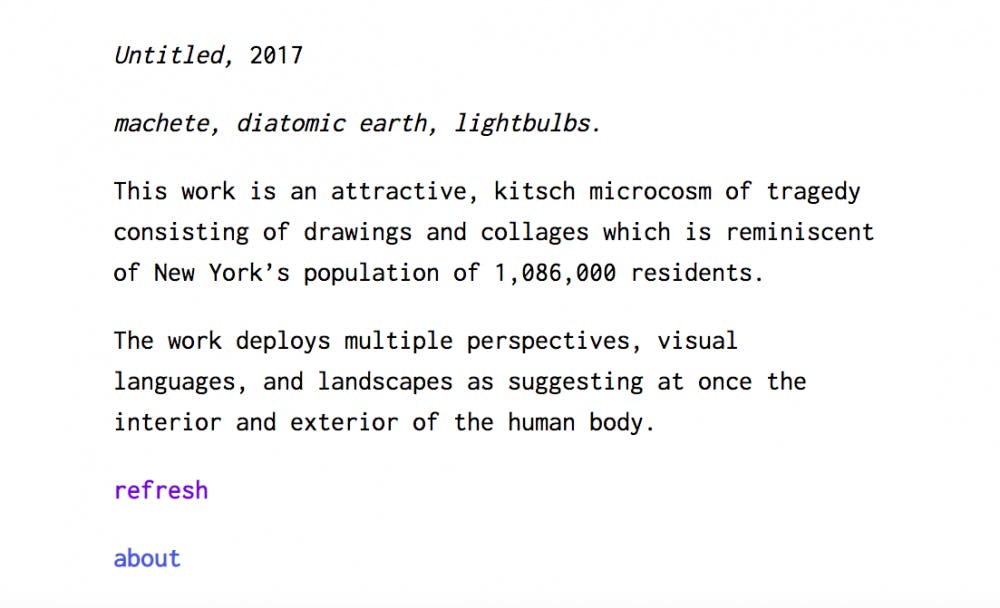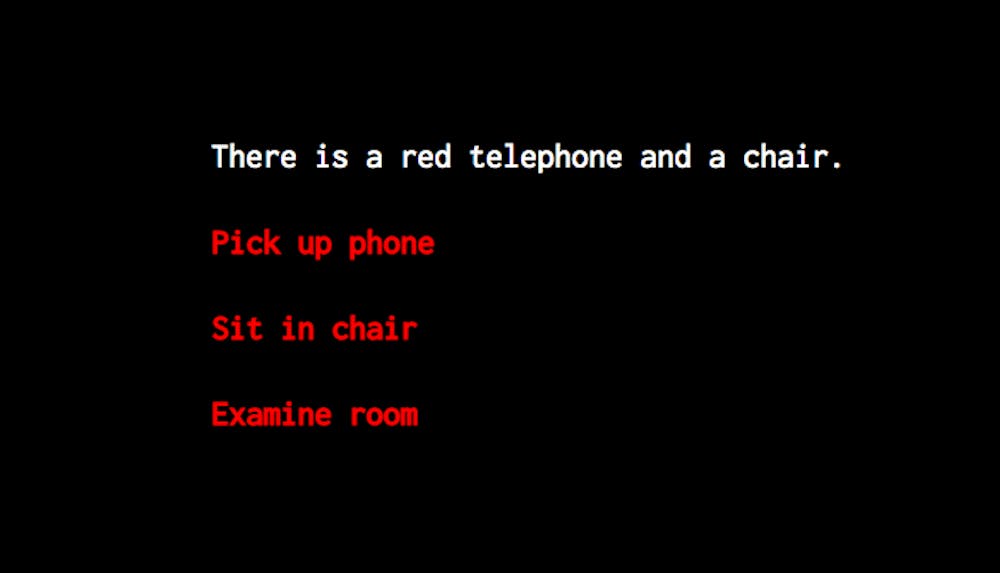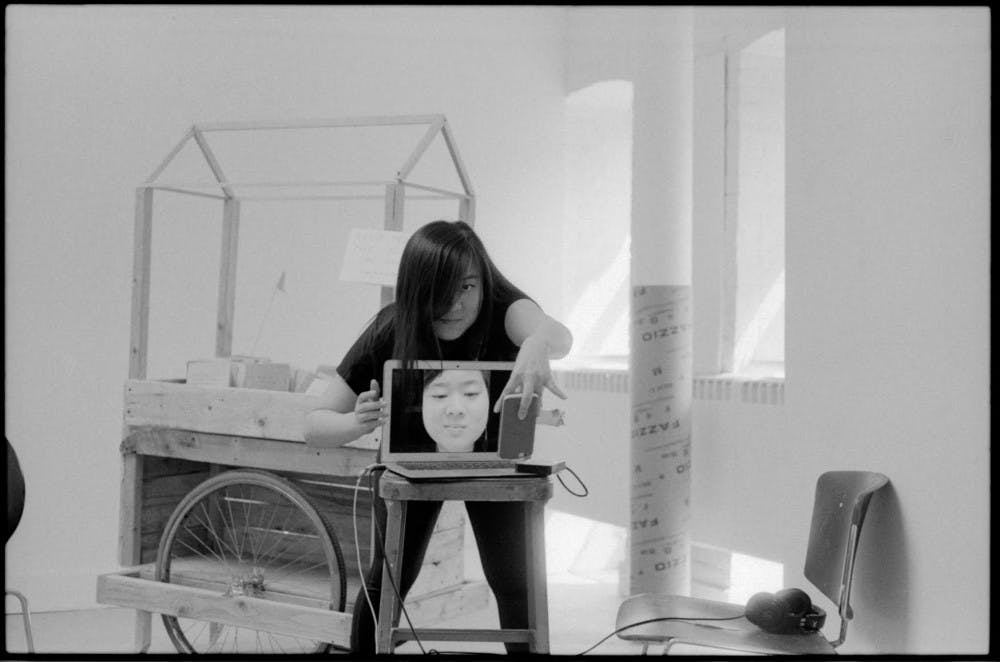Just one year out of college, Isabel Kim (C ‘18, L ‘21) is back at Penn—this time, at Penn Law. Armed with degrees in English and fine arts, it seems as if her interest in interpreting the written word and language traces back to a long history. Yet, she’s somehow managed to combine even this with her interest in the arts, imbuing the concepts of word and text into her own art. In this way, she’s become a digital–interdisciplinary artist, among the few who explore the boundary between text and art.
The intertwinement between the two is maybe best explained by her artworks. Take her Infinite Art Generator, arguably an online game. In this, she generates texts that typically function as introductions of work into artworks themselves. A click of the button refreshes a random blurb about some unidentified art piece.

One reads: “Untitled, 2017 antebellum structures, linseed oil, polaroid photographs from the artists collection. This work is a destructive, erotic kaleidoscopic grid consisting of a hybrid space which is reminiscent of identity, loss, mortality, and love. The work deploys synthesized, hybrid organisms as a way to question who can enter and leave the country freely.”
In this, the words, taken holistically, are the art. The idea originated from her frustration with artworks’ labels. To her, some labels were confusing, even bombastic. As a response to this, she made Infinite Art Generator, what she calls an “iterated commentary,” a comment on something through making a thing about itself.
“The language is opaque, and at a certain point of time it stops to mean anything,” Isabel said. “The original input was a text that talks about how artworks can only exist in description; you only need a description of an artwork to write about it. Then I start wondering if I can create meaning out of noise, create something that can be conceptualized in mind without actually existing.”
This is how Isabel’s creative process usually starts: she substantializes her observations and thoughts on the world around her into a concept and then pushes the concepts to their logical extreme. In Infinite Art Generator, Isabel condenses her thoughts about labels into infinite iterations of conceptual artworks—fictional ones, to say the least, that do not physically exist.
In her game Repeatacycle, Isabel also plays with the concept of words as art, this time to convey her thoughts on temporality. Essentially, it’s a conversation with your “futurepastself,” forming “a text game with no end,” where each click is a simple choice. “Pick up phone,” “sit in chair,” or “examine room.” You sit down. “Pick up phone” or “Examine room.” You examine room. “Pick up phone,” “sit in chair,” or “examine wallpaper.” With each choice comes a whole other set of choices, forming a journey much like going through a parallel universe.

In this temporal experience, even though players are moving through in a linear timely fashion, the game creates a sense that they move through multiple portals of time and space because of the infinite loops of choices. This creates a sense of the infinite self, each self presented with text–wise similar yet context–wise different options as one proceeds in the game.
The game is a testament to the general idea that the choices one makes are not static. By adding in universal emotions through her text, whether it’s love, change, or being annoyed at one’s future self, the game is made more relatable. “You don’t play as one character; you are given basically the perception of yourself as a player character that crosses multiple worlds,” Isabel added.
In yet another piece, “Digital Intimacy: Yeah I wrote this on the internet for public consumption also people asked me things i guess,” Isabel again made a meta–commentary, this time on her herself, the digital persona and the person behind it. Built around her experience as a popular blogger on Tumblr, the piece physically consists of a television screen and a videotape of her microexpressions as she scrolled through the social media site, posting or answering questions online.

The visualization of her experience of communicating with people online invited people to feel the unease she feels at times. “I’d like people to reflect on the fake intimacy that you have when you talk to a stranger online, and the unbalanced power dynamic that exists between a named digital entity and an anonymous public in what gets asked and what gets answered,” she said.
Though her law books today leave little time for art, Isabel doesn’t seem to be in a hurry. “It would be nice if it happens,” she described, on her attitude towards an art career. This attitude is very much reflected in how she approaches art as a whole. “I usually have an idea of where I’m going but around the halfway point it always gets messed up. A lot of products don’t really create what I set out to make, but it creates something interesting, and I’m okay with it,” she said. “Sometimes you just make a thing and it exists.”
There’s no doubt that her dabbling in English and the fine arts has shaped her approach to the written word. Language, to Isabel, is not merely a means to an end; it’s an end in itself. And it is with this idea that she crafts her own art.

